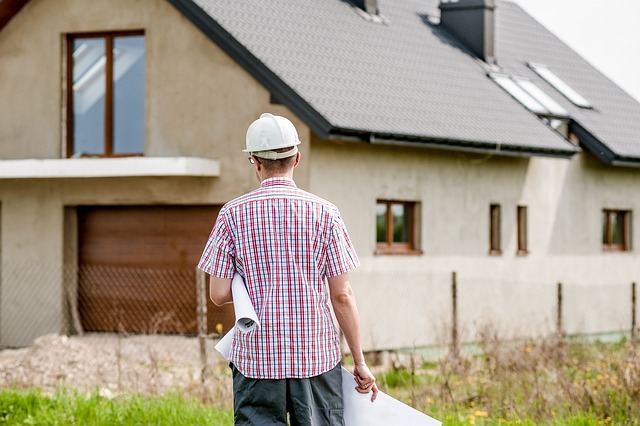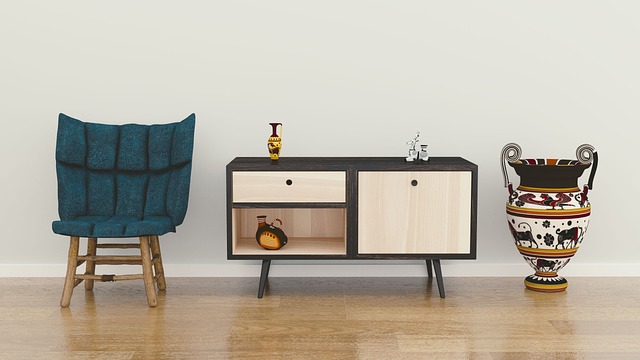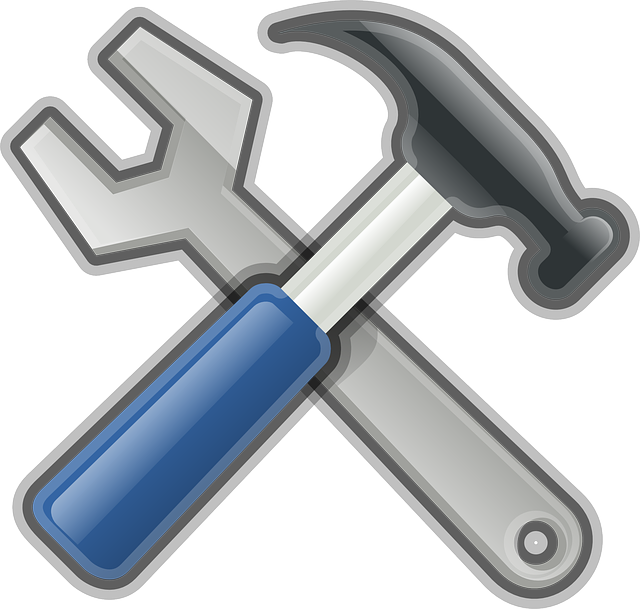Regular HVAC maintenance is essential for maintaining energy efficiency and comfort within homes, extending system lifespan, and promoting environmental sustainability. Key upkeep tasks include filter cleaning or replacement, thermostat testing, and examination of all moving parts, which can be performed by homeowners or professionally assessed biannually to ensure peak performance during seasonal shifts. Preventive care not only heads off minor issues but also averts their escalation into costly repairs. Engaging in professional HVAC services for these checks aligns with effective home repair and maintenance practices, safeguarding both the home's climate and the investment in the HVAC system. Regular maintenance includes cleaning or replacing air filters, inspecting coils, adjusting thermostats, maintaining outdoor units, sealing ductwork, insulating pipes, and using smart thermostats to enhance energy efficiency and reduce utility expenses over time. This comprehensive approach to home repair and maintenance ensures a stable and pleasant home climate year-round while offering significant financial savings.
Maintaining a well-functioning HVAC system is key to ensuring home efficiency, comfort, and longevity. This article delves into the essentials of HVAC maintenance and repair practices that keep your home’s climate control systems in peak condition. From understanding the importance of regular upkeep to navigating common issues and weighing DIY versus professional solutions, we provide a comprehensive guide for homeowners dedicated to home repair and maintenance. Learn how to optimize your HVAC system for cost-efficiency and uninterrupted comfort, ensuring your home’s environment is always just right.
- Understanding the Importance of Regular HVAC Maintenance for Home Efficiency
- Step-by-Step Guide to Effective HVAC System Checks and Adjustments
- Troubleshooting Common HVAC Issues: DIY Solutions vs. Professional Help
- The Role of Professional HVAC Repair Services in Maintaining Home Comfort
- Cost-Efficient Strategies for Long-Term HVAC Maintenance and Repair
Understanding the Importance of Regular HVAC Maintenance for Home Efficiency

Regular HVAC maintenance is a cornerstone in maintaining high energy efficiency within a home, which translates to cost savings and enhanced comfort for residents. A well-maintained heating, ventilation, and air conditioning system operates more efficiently, reducing the strain on components and improving overall performance. Homeowners who prioritize regular tune-ups can expect their systems to last longer and perform better, which is not only beneficial for the environment but also for their wallets. During these maintenance sessions, a professional will clean or replace filters, inspect electrical connections, test thermostats, and ensure all moving parts are functioning as intended. This proactive approach to HVAC maintenance as part of home repair and maintenance can prevent small issues from escalating into costly repairs, ensuring that the system runs smoothly throughout the year. It’s a best practice to have an HVAC system evaluated twice annually—once before the heating season and once before cooling season—to address any potential problems and optimize the system’s operation for year-round comfort and energy savings.
Step-by-Step Guide to Effective HVAC System Checks and Adjustments

Regular maintenance and timely repairs are crucial for the efficient operation of your HVAC system. To ensure your system functions at its best, it’s essential to perform routine checks and adjustments. Begin by examining the filters, which should be cleaned or replaced based on the manufacturer’s recommendations or every one to three months for optimal airflow. Next, inspect the thermostat settings to confirm accurate temperature readings and proper calibration. Ensure that all registers and returns are unobstructed to prevent any airflow restrictions.
Outdoor units require attention as well. Clear away any debris or foliage that may have accumulated around the unit, as this can impede its ability to release heat effectively. Inspect the coils for dirt and grime, cleaning them thoroughly if necessary. Lubricate all moving parts, such as fan motors and bearings, to reduce friction and prolong their lifespan. Additionally, check the refrigerant levels to ensure they are at the correct pressure, which is vital for the system’s performance and energy efficiency. If you encounter any issues during your checks or if you lack the necessary expertise, it’s advisable to consult a professional for HVAC repair and maintenance services. Their specialized knowledge can help identify potential problems before they escalate into costly repairs or system failures. Regular upkeep through these step-by-step checks and adjustments not only extends the lifespan of your HVAC system but also ensures it operates safely and efficiently, contributing to home repair and maintenance best practices.
Troubleshooting Common HVAC Issues: DIY Solutions vs. Professional Help

When HVAC issues arise, homeowners are often faced with a decision between addressing them themselves or calling in professional help for home repair and maintenance. Common HVAC problems like unusual noises, inefficient heating or cooling, and inconsistent temperatures can sometimes be resolved through DIY troubleshooting. For instance, changing air filters regularly can prevent dust buildup that impedes airflow and efficiency. Similarly, ensuring the thermostat settings are correct can resolve temperature discrepancies without the need for technical expertise. However, more complex issues like refrigerant leaks, electrical faults, or significant performance declines typically require professional intervention. Certified HVAC technicians bring specialized knowledge and tools to accurately diagnose and repair these problems. They ensure that the job is done safely and effectively, often preventing further damage or inefficiency that could result from an improper fix. Regular maintenance by professionals not only helps in troubleshooting common issues but also extends the lifespan of the HVAC system, ensuring it operates at peak performance. This proactive approach to home repair and maintenance can save homeowners time, money, and discomfort in the long run.
The Role of Professional HVAC Repair Services in Maintaining Home Comfort

Regular home repair and maintenance are pivotal for ensuring that a household’s HVAC system operates efficiently, providing optimal comfort throughout the year. Professional HVAC repair services play an indispensable role in this process. These experts are skilled in diagnosing issues before they escalate, offering timely solutions to maintain the integrity and performance of your heating and cooling systems. Their proactive approach not only extends the lifespan of your HVAC equipment but also safeguards against unexpected breakdowns that can disrupt home comfort. By conducting routine inspections and preventive maintenance, these professionals can pinpoint potential problems and rectify them, thereby ensuring your home’s environment remains stable and pleasant, regardless of the season. This level of care is essential for maintaining energy efficiency and reducing utility costs, as a well-maintained HVAC system performs better and uses less energy. Homeowners who invest in professional HVAC repair services can rest assured that their investment is protected and their living spaces are comfortable and healthy.
Cost-Efficient Strategies for Long-Term HVAC Maintenance and Repair

Regular upkeep of your HVAC system is a cornerstone of cost-effective home maintenance, extending its lifespan and preventing untimely repairs. Homeowners can adopt several strategies to maintain their HVAC systems efficiently. Firstly, scheduling routine check-ups during the spring and fall seasons ensures the system operates at peak efficiency year-round. These inspections should include cleaning or replacing air filters, inspecting coils for dirt and debris, and verifying the thermostat settings are accurate. Homeowners can also invest in programmable or smart thermostats to optimize energy usage, thereby reducing utility costs and extending the lifespan of the HVAC unit.
Furthermore, sealing ductwork to prevent air leaks is a proactive measure that can significantly enhance system performance. Leaks can waste substantial amounts of conditioned air, causing the system to work harder and more frequently, leading to higher energy bills and potentially shorter system lifespans. Regularly cleaning the outdoor unit and trimming any surrounding vegetation to ensure proper airflow is another vital aspect of long-term HVAC maintenance. Additionally, insulating pipes and installing proper insulation around the system can prevent it from overworking in extreme temperatures, which is both a home repair and maintenance best practice. By implementing these cost-efficient strategies, homeowners can maintain a comfortable living environment while also saving on energy costs over the long term.
In conclusion, maintaining and repairing your HVAC system is a critical aspect of home efficiency and comfort. Regular upkeep ensures optimal performance, extending your system’s lifespan and maximizing energy savings—key components in home repair and maintenance. Whether addressing issues on your own or seeking professional expertise, understanding the nuances between DIY solutions and specialized HVAC repair services is paramount. By implementing cost-effective strategies for long-term maintenance and repair, homeowners can safeguard their investment and enjoy a consistently comfortable living environment. The guidance provided in this article equips you with the necessary knowledge to make informed decisions about your HVAC system’s care, ultimately enhancing both the functionality and longevity of your home.
